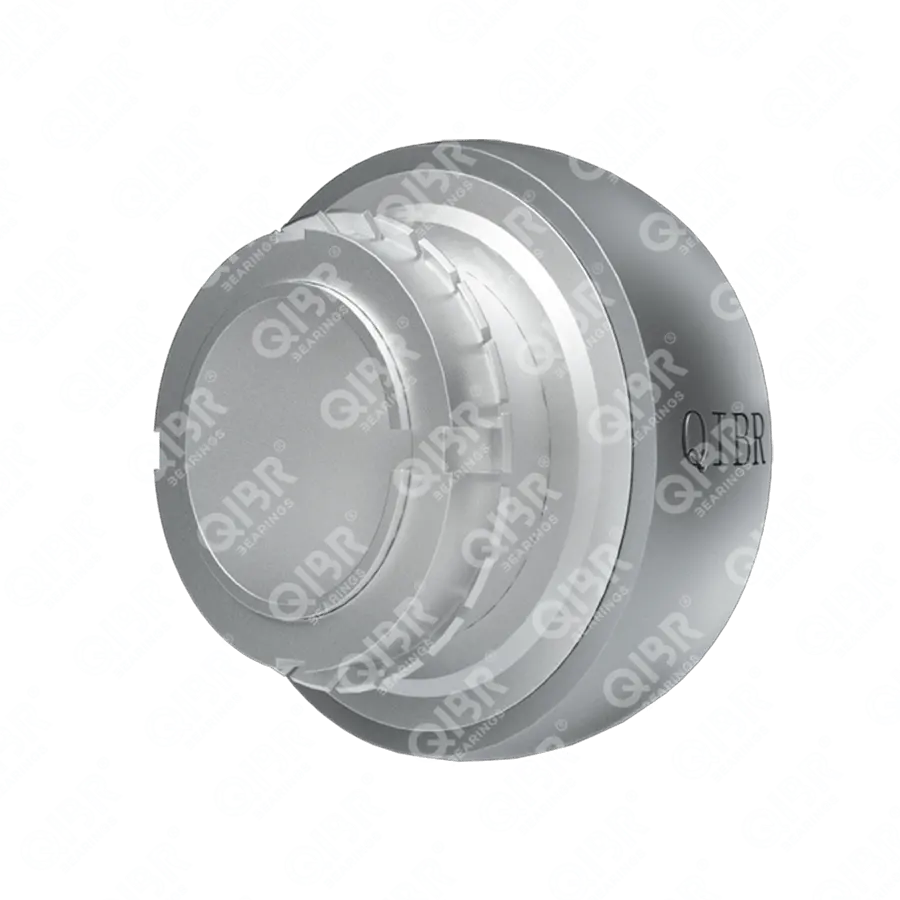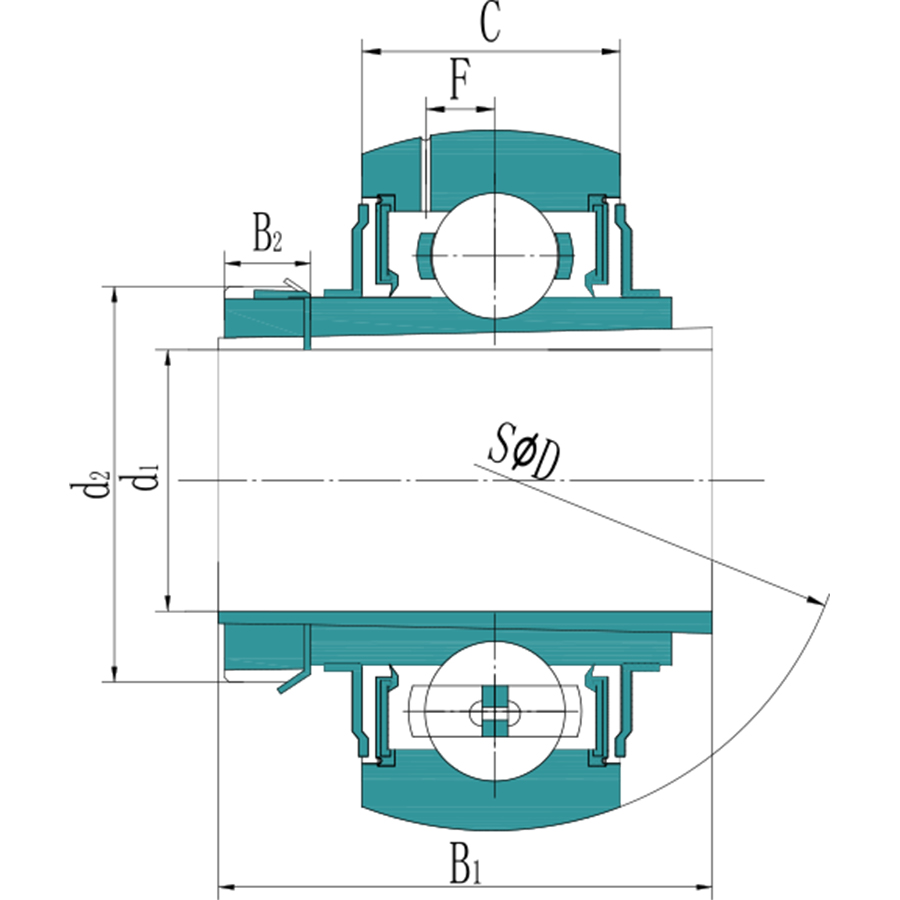
Изображения могут отличаться от продукта. Подробнее см. технические характеристики.
Поиск нужной модель подшипника.
Стандарт
GB,ASTM/AISI,ГОСТ,BS,JIS,NF,DIN / VDEh
Материал
52100, 100Cr6, SUJ2, stainless steel
Внутренний диаметр
19.05mm-140mm
Наружный диаметр
52mm-300mm
Вес
0.24kg-29.45kg
Бренд
QIBR/OEM/Neutral
Упаковка
QIBR/Standard Industrial Package/OEM
Применения
Conveyor systems, agricultural machinery, food processing equipment, textile machinery, ect

| NO. | Product | Product Number | Базовая динамическая нагрузка | Базовая статическая нагрузка | Отверстие | Вес |
|---|---|---|---|---|---|---|
| 1 |

|
YSA 205-2FK-HE2305 | 14 KN | 7.8 KN | 0.25 kg | |
| 2 |

|
YSA 206-2FK-HA2306 | 19.5 KN | 11.2 KN | 0.39 kg | |
| 3 |

|
YSA 206-2FK-HE2306 | 19.5 KN | 11.2 KN | 0.37 kg | |
| 4 |

|
YSA 207-2FK-HA2307 | 25.5 KN | 15.3 KN | 0.54 kg | |
| 5 |

|
YSA 208-2FK-HE2308 | 30.7 KN | 19 KN | 0.77 kg | |
| 6 |

|
YSA 209-2FK-HA2309 | 33.2 KN | 21.6 KN | 0.92 kg | |
| 7 |

|
YSA 209-2FK-HE2309 | 33.2 KN | 21.6 KN | 0.88 kg | |
| 8 |

|
YSA 210-2FK-HA2310 | 35.1 KN | 23.2 KN | 1.05 kg | |
| 9 |

|
YSA 210-2FK-HE2310 | 35.1 KN | 23.2 KN | 0.98 kg | |
| 10 |

|
YSA 211-2FK-HA2311 | 43.6 KN | 29 KN | 1.3 kg | |
| 11 |

|
YSA 211-2FK-HE2311B | 43.6 KN | 29 KN | 1.2 kg | |
| 12 |

|
YSA 213-2FK-HA2313 | 57.2 KN | 40 KN | 2.1 kg | |
| 13 |

|
YSA 213-2FK-HE2313 | 57.2 KN | 40 KN | 2.05 kg | |
| 14 |

|
UK205-HE2305 | 14000 N | 7850 N | 0.9803 inch | 0.24 kg |
| 15 |

|
UK206-HS2306 | 19450 N | 11250 N | 1.1811 inch | 0.36 kg |
| 16 |

|
UK206-HE2306 | 19450 N | 11250 N | 1.1811 inch | 0.36 kg |
| 17 |

|
UK207-HS2307 | 25700 N | 15200 N | 1.378 inch | 0.52 kg |
| 18 |

|
UK208-HE2308 | 29500 N | 18100 N | 1.5748 inch | 0.67 kg |
| 19 |

|
UK208-HS2308 | 29500 N | 18100 N | 1.5748 inch | 0.67 kg |
| 20 |

|
UK209-HA2309 | 32700 N | 20900 N | 1.7717 inch | 0.77 kg |
| 21 |

|
UK209-HE2309 | 32700 N | 20900 N | 1.7717 inch | 0.77 kg |
| 22 |

|
UK209-HS2309 | 32700 N | 20900 N | 1.7717 inch | 0.77 kg |
| 23 |

|
UK210-HS2310 | 35000 N | 23200 N | 1.9685 inch | 0.92 kg |
| 24 |

|
UK210-HA2310 | 35000 N | 23200 N | 1.9685 inch | 0.92 kg |
| 25 |

|
UK210-HE2310 | 35000 N | 23200 N | 1.9685 inch | 0.92 kg |
| 26 |

|
UK211-HS2311 | 43300 N | 29200 N | 2.1654 inch | 1.15 kg |
| 27 |

|
UK211-HA2311 | 43300 N | 29200 N | 2.1654 inch | 1.15 kg |
| 28 |

|
UK211-HE2311 | 43300 N | 29200 N | 2.1654 inch | 1.15 kg |
| 29 |

|
UK212-HS2312 | 47700 N | 32000 N | 2.3622 inch | 1.47 kg |
| 30 |

|
UK213-HA2313 | 57200 N | 40000 N | 2.5591 inch | 1.81 kg |
| 31 |

|
UK213-HE2313 | 57200 N | 40000 N | 2.5591 inch | 1.81 kg |
| 32 |

|
UK213-HS2313 | 57200 N | 40000 N | 2.5591 inch | 1.81 kg |
| 33 |

|
UK215-HA2315 | 66200 N | 49300 N | 2.9528 inch | 2.55 kg |
| 34 |

|
UK215-HE2315 | 66200 N | 49300 N | 2.9528 inch | 2.55 kg |
| 35 |

|
UK216-HA2316 | 72600 N | 53300 N | 3.1496 inch | 3.08 kg |
| 36 |

|
UK216-HE2316 | 72600 N | 53300 N | 3.1496 inch | 3.08 kg |
| 37 |

|
UK217-HA2317 | 83300 N | 63700 N | 3.3465 inch | 3.7 kg |
| 38 |

|
UK217-HE2317 | 83300 N | 63700 N | 3.3465 inch | 3.7 kg |
| 39 |

|
UK218-HA2318 | 96000 N | 71100 N | 3.5433 inch | 4.34 kg |
| 40 |

|
UK305-HE2305 | 22400 N | 11500 N | 0.9843 inch | 0.39 kg |
| 41 |

|
UK306-HS2306 | 26500 N | 14900 N | 1.1811 inch | 0.59 kg |
| 42 |

|
UK306-HE2306 | 26500 N | 14900 N | 1.1811 inch | 0.59 kg |
| 43 |

|
UK307-HS2307 | 32300 N | 19100 N | 1.378 inch | 0.75 kg |
| 44 |

|
UK308-HE2308 | 40600 N | 23700 N | 1.5748 inch | 1.00 kg |
| 45 |

|
UK308-HS2308 | 40600 N | 23700 N | 1.5748 inch | 1.00 kg |
| 46 |

|
UK309-HA2309 | 48600 N | 28900 N | 1.7717 inch | 1.35 kg |
| 47 |

|
UK309-HE2309 | 48600 N | 28900 N | 1.7717 inch | 1.35 kg |
| 48 |

|
UK309-HS2309 | 48600 N | 28900 N | 1.7717 inch | 1.35 kg |
| 49 |

|
UK310-HS2310 | 62000 N | 38000 N | 1.9685 inch | 1.77 kg |
| 50 |

|
UK310-HA2310 | 62000 N | 38000 N | 1.9685 inch | 1.77 kg |
| 51 |

|
UK310-HE2310 | 62000 N | 38000 N | 1.9685 inch | 1.77 kg |
| 52 |

|
UK311-HS2311 | 71600 N | 44600 N | 2.1654 inch | 2.21 kg |
| 53 |

|
UK311-HA2311 | 71600 N | 44600 N | 2.1654 inch | 2.21 kg |
| 54 |

|
UK311-HE2311 | 71600 N | 44600 N | 2.1654 inch | 2.21 kg |
| 55 |

|
UK312-HS2312 | 81600 N | 51800 N | 2.3622 inch | 2.54 kg |
| 56 |

|
UK313-HA2313 | 93700 N | 60000 N | 2.5591 inch | 3.27 kg |
| 57 |

|
UK313-HE2313 | 93700 N | 60000 N | 2.5591 inch | 3.27 kg |
| 58 |

|
UK313-HS2313 | 93700 N | 60000 N | 2.5591 inch | 3.27 kg |
| 59 |

|
UK315-HA2315 | 103600 N | 67100 N | 2.9528 inch | 4.85 kg |
| 60 |

|
UK315-HE2315 | 103600 N | 67100 N | 2.9528 inch | 4.85 kg |
| 61 |

|
UK316-HA2316 | 112800 N | 75700 N | 3.1496 inch | 5.67 kg |
| 62 |

|
UK316-HE2316 | 112800 N | 75700 N | 3.1496 inch | 5.67 kg |
| 63 |

|
UK317-HA2317 | 123500 N | 88200 N | 3.3465 inch | 6.75 kg |
| 64 |

|
UK317-HE2317 | 123500 N | 88200 N | 3.3465 inch | 6.75 kg |
| 65 |

|
UK318-HA2318 | 133000 N | 97500 N | 3.5433 inch | 7.99 kg |
| 66 |

|
UK319-HA2319 | 144700 N | 110800 N | 3.7402 inch | 9.23 kg |
| 67 |

|
UK320-HA2320 | 173000 N | 141000 N | 3.937 inch | 10.85 kg |
| 68 |

|
UK322-HA2322 | 205000 N | 179000 N | 4.3307 inch | 14.94 kg |
| 69 |

|
UK324-HA2324 | 227000 N | 207000 N | 4.7244 inch | 19.29 kg |
| 70 |

|
UK326-HA2326 | 253000 N | 241000 N | 5.1181 inch | 23.4 kg |
| 71 |

|
UK328-HA2328 | 274000 N | 272000 N | 5.5118 inch | 29.45 kg |
Особенности и преимущества подшипников для корпуса QIBR с коническим отверстием на переходной втулке (дюймовые валы)
Подшипники для корпуса QIBR с коническим отверстием на переходной втулке (дюймовые валы) решают ряд ключевых проблем в различных областях, в частности, в следующих аспектах:
1. Способность к самоустановке
Подшипники для корпуса QIBR с коническим отверстием на переходной втулке (дюймовые валы) обладают функцией самоустановки. Состоящий из внутреннего кольца, наружного кольца, тел качения и сепаратора, сферическая форма наружного кольца позволяет подшипнику адаптироваться к определенным осевым и радиальным смещениям. Даже если вал установлен не идеально, подшипник может работать нормально, уменьшая повреждения, вызванные ошибками при установке.
2. Высокая грузоподъемность
Подшипники для корпуса QIBR с коническим отверстием на переходной втулке (дюймовые валы) выдерживают значительные радиальные и некоторые осевые нагрузки, что делает их пригодными для использования в тяжелом оборудовании.
3. Долговечность и надежность
Эти подшипники износостойки и ударопрочны. В тяжелых условиях работы, например, в условиях запыленности или влажности, они демонстрируют высокую надежность.
4. Снижение износа вала
Использование переходной втулки позволяет минимизировать износ поверхности вала, так как втулка обеспечивает более равномерное контактное давление.
Улучшение характеристик и решения для подшипников QIBR с коническим отверстием на переходной втулке (дюймовые валы)
1. Улучшение материалов
Высокопроизводительные материалы: Использование высокопрочных и износостойких материалов, таких как керамика, современные легированные стали и нержавеющая сталь, позволяет значительно повысить долговечность и грузоподъемность подшипников-вкладышей.
Обработка поверхности: Обработка поверхности, такая как науглероживание, азотирование, хромирование и закалка, позволяет повысить износостойкость, коррозионную стойкость и усталостную прочность.
2. Повышение точности
Высокоточное производство: Передовые технологии обработки, такие как обработка на станках с ЧПУ и прецизионное шлифование, используются для повышения точности изготовления подшипника, делая его работу более плавной и снижая уровень шума.
Высокоточная посадка: Повышение точности совмещения внутренней и наружной дорожек качения обеспечивает плавное и стабильное вращение подшипника, снижая трение и износ.
3. Улучшение характеристик уплотнения
Эффективное уплотнение: Более эффективные уплотнительные конструкции, такие как двухкромочные уплотнения или скелетные уплотнения, эффективно предотвращают попадание внешней пыли и загрязнений в подшипник, снижая уровень загрязнения и продлевая срок службы подшипника.
Материалы уплотнений: Для обеспечения надежности подшипника в жестких условиях эксплуатации используются высокотемпературные, износостойкие и коррозионностойкие материалы уплотнений.
4. Повышение грузоподъемности
Оптимизированная конструкция: Оптимизация геометрической структуры подшипника-вкладыша, например, увеличение площади контакта или использование более прочной конструкции наружного кольца, повышает грузоподъемность подшипника, позволяя ему лучше выдерживать большие нагрузки.
Основные области применения подшипников QIBR с коническим отверстием на переходной втулке (дюймовые валы)
1. Сельскохозяйственное оборудование
Подшипники для корпуса широко используются в сельскохозяйственном оборудовании, таком как тракторы, сеялки и комбайны. Эти машины часто работают при больших нагрузках и могут испытывать осевое или радиальное смещение, поэтому самоустанавливающиеся свойства подшипников вкладышей очень полезны в таких условиях.
2. Строительная техника
Подшипники для корпуса широко используются в строительной технике, такой как краны, экскаваторы и бетономешалки. Эти машины обычно работают в условиях высоких нагрузок и ударов, а высокая грузоподъемность и самоустанавливающиеся свойства подшипников вкладышей помогают обеспечить более плавную работу.
3. Автомобильная промышленность
В автомобильных системах подвески, колесных осях и системах рулевого управления широко используются подшипники-вкладыши. Они способны выдерживать обратные ударные нагрузки и боковые силы от шин и систем подвески, что делает их идеальными для применения в автомобильной промышленности.
4. Железнодорожный транспорт
Подшипники для корпуса широко используются в колесах, тележках и других несущих элементах железнодорожных локомотивов и вагонов. Железнодорожный транспорт требует работы с тяжелыми грузами и высокочастотного движения. Высокая грузоподъемность и отличные самоустанавливающиеся характеристики подшипников вкладышей позволяют им эффективно решать эти задачи.


